|
By Sara Forcella, See the Triumph Contributor
Over the course of this summer See the Triumph is focusing on ways that survivors can be supported. We focus a lot on how survivors deal with all of the hurt, anger, fear, etc. from these relationship--topics that are extremely important. Nonetheless, in this post, I’d like to discuss something a bit different; something I’ve personally been struggling with for the past few months. I want to talk about how friends, family, and allies of survivors help themselves. Being an advocate is hard work, not only because of the long hours, or typically the less-than-amazing pay, but because it’s hard on the mind and heart. It takes a special kind of person to work day in and day out dealing with others' problems. I say this with nothing but respect; I choose to deal with others' problems. I want to advocate for them, to help them, to care for them. It’s what I love to do and I would never, trade my career choice for one that was less meaningful, but came with a larger paycheck. However, advocates usually know what they are signing up for; friends and family members of survivors usually don’t. See the Triumph has spoken about how friends and family members can help survivors of abuse or sexual assault, which can be found here. My question though is, how do these folks help themselves? Knowing a survivor, listening to their stories, trying to support them, again can be difficult. It takes courage, empathy and strength. As an ally, sometimes it feels as if you are living in that abusive relationship, just without all of the mental and physical scars. And I can tell you from first hand experience that it’s scary! Not knowing whether you’re going to get that call that your friend has just been brutally beaten, or worse, is enough to make you sick. It’s also scary because it’s hard to know when to speak up, when to step in, and when to say something, because you don’t want to push that survivor away, and you don’t want to lose them. Advocates and allies of survivors can deal with what’s called vicarious trauma. Simply put, this is trauma that results from consistent meaningful, empathetic, engagement with survivors. Vicarious trauma is real, and it happens more than you think. That’s why it is so important for those who listen to survivors’ stories, who feel their pain--who worry, care, and cry for them--to take good care of themselves. It is a must that we practice good self-care--that we are able to step away from the situation and give our minds and hearts the approval to step away from that space. Practicing good self-care is something that I spend lots of time talking about and practicing with the group of peer educators that I work with. In fact, I used an entire meeting just to teach them some basic meditation skills. It struck me the other day when one of my typically upbeat and engaged students seemed spacy and withdrawn. Later, I found out that she was dealing with some pretty heavy stuff, as she was dealing with (what seemed to me) some vicarious trauma. She was so concerned about the well being of a friend that she didn’t even realize that it was affecting her. The advice that I gave her and the advice that I am working on accepting for myself is that it is okay to take a step away. Yes, I said it! It is okay to tell a survivor who’s a friend or family member that you need to take a step back, that you need to take care of yourself. As an ally, the abuse and pain is not yours, and you cannot own it. You can empathize, support and help, but please do not own it! I look at it this way: you’ve got a figurative backpack of gunk--pain, hurt, anger, fear--of your own. It’s not healthy to take on the gunk of others’ backpacks. I acknowledge that this is way easier said than done. It’s really hard for me to allow myself to take a step away. Why? Because it feels like I’m abandoning my friend; it feels like I’m being a crappy person! What I want you to know though, is that you are not abandoning them or trying to hurt them. You are only trying to better yourself, so that when they really need you, you can be there for them. Practicing good self-care means that it is okay to respectfully, tactfully let your friend, brother, partner, whomever, know that you need to take a step back. Or, that you just can’t handle a story on that particular day. It means you can give yourself a green light to let them know that you are going to be really busy in the next few days and may not be as readily available as you have in the past. I can assure you that running your own emotional and physical well-being into the ground is not going to help you, or a survivor. So, speak up and be honest; it is okay to put your own needs before others, in fact, sometimes it’s necessary. 12/30/2014 Self-Care: Figuring Out What Works For YouBy Christine Murray, See the Triumph Co-Founder
All this month, we’ve focused on the importance of practicing self-care, whether you’re a survivor of an abusive relationship, if you work professionally with clients impacted by abuse and trauma, or if you’re someone who’s been touched by abuse in other ways, such as having a friend or family member who has been abused. As we wrap up this series, we want to emphasize that self-care can look very different for different people, so what’s most important is finding out what strategies work best for you. To help inspire you to think of all the diverse ways that you might put self-care practices at work in your own life, below you’ll find a list of the various strategies that survivors of past abusive relationships who participated in our research have used to care for themselves:
You’re worth it! You have an important contribution to make to the world, and you’ll be in the best position to make that contribution if you are consistently recharging, getting re-energized, and restoring your commitment to yourself and others by engaging in self-care! 12/23/2014 Self-Care In A Busy WorldBy Heather Teater, See the Triumph Guest Blogger
In high school it was marching band and AP homework. In college it was studying for exams, reading a book a week for my English minor, and striving for the coveted 4.0. In grad school, it was homework, internship, doing research for clients, and a mess of other life issues. There was always a reason that I just needed to wait until the next stage of my life before I could finally have time to take care of myself. Yet, even now I find myself making excuses as to why I don't have time for myself. I work a full-time job, I need to make time for my husband, there are chores to be done, hobbies are too expensive... the list could go on. I'm sure I'm not the only one who feels too busy or too tired to take better care of myself. So, what are we to do when the world seems to be asking too much of what little time we have? Is self-care just a lofty goal that only a privileged few can achieve? Should we stop kidding ourselves and give up? No. It may take a while, but even in this busy world in which we live, we all can find a little time to take care of ourselves. I have a few suggestions to start heading in that direction. 1. Make a list of positive things that replenish you. Do you enjoy exercise, reading books, meditation, painting, deep breathing, solving crosswords, grabbing lunch with friends? Whatever you enjoy, write it all down so that you have a list on hand when you find a moment in your day. If you don't know what is refreshing to you anymore, try something out! Ask your friends what healthy things they do to relax, search for suggestions on the internet, or just start doing something that catches your eye. The more activities you find that leave you feeling relaxed and refreshed, the more options you have to choose from when you find the time for self-care. 2. Look for small moments in your day. You might be surprised at how many five- to ten-minute periods of free time you have scattered throughout your day. Do you always take your full lunch break to eat your food, or do you finish with some time to spare? Do you arrive a few minutes early to work? Do you sometimes find yourself scrolling mindlessly through social media? These times can be used for a few minutes of self-care. You can't read a whole chapter of a book or go for a run, but you can read a news article about one of your interests, work on a sudoku, or do some jumping jacks. I like to use these quick bouts of time to do some deep breathing. I use a free app on my phone called Breathe2Relax, but you can guide your own deep breathing if you prefer. 3. Intentionally build some time into your schedule for self-care. Most of the activities on your list probably can't be done in five minutes, and it is unlikely that you find a spare consecutive half-hour or more just appears in your day on a regular basis. If you do, good for you! Protect it. If you are like me, however, you have to purposely set aside some time for yourself. Get up a little earlier, go to bed a little later, watch one less episode of your favorite show in the evening, say "no" to some requests people make of you (really, you don't have to do everything for everyone). I know from experience that this can be a difficult process and some days just don't have room for any more activities, but if you keep pushing to make time for yourself, it can become a habit! 4. Try to start eating healthier foods. Eating right makes your body feel good, and it doesn't necessarily take extra time. I often tell myself that eating healthy foods is too expensive, and it can be. However, it is possible to buy healthy foods on a budget. Look for fresh fruits, vegetables, and meats that are on sale. You can even buy more than you and your family will typically eat and then freeze some for another day. Also, look in your area to see if you have any discount food stores; many communities have grocery stores that sell food items that are about to expire at much cheaper prices. Learning to take time for you can be a long and sometimes difficult process. The real first step in finding time for self-care is to decide that your health and well-being are worth the extra effort and decide to stop making excuses and start making changes. And we're all worth it, so let's get started! Heather Teater recently completed her Master's degree in Couple and Family Counseling in the Department of Counseling and Educational Development at the University of North Carolina at Greensboro. 12/18/2014 See the Triumph's "My Self-Care Action Plan"We've developed this "Self-Care Action Plan" to help you consider self-care strategies that you could put in place in your life. Take some time to jot down ideas in each section included on the Plan. You may find some sections apply more to you than others--feel free to add more ideas on a separate sheet of paper as you see fit. Remember--this is your own plan, so think carefully about what would work best for you! You can download a pdf copy of the Plan at the bottom of this post. We hope this will be a helpful resource to you as you make self-care an ongoing priority in your life!
12/11/2014 Self-Care and Boundaries with OthersBy Christine Murray, See the Triumph Co-Founder
Many aspects of self-care relate specifically to the ways a person treats him- or herself, such as journaling, using relaxation exercises, and making decision to eat nutritious food and exercise regularly. However, being able to care for oneself often also involves creating healthy boundaries in relationships with others. Establishing boundaries in relationships with others--especially close relationships--can be a daily process that may involve give rise to a number of significant challenges. From my background and training as a marriage and family therapist, I’ve come to believe that healthy boundaries are both clear and flexible, meaning that there is some clear understanding of what those boundaries look like, but they are able to be flexible enough to change when new circumstances arise. Boundaries that are too rigid or too loose can both become problematic. One of the major challenges in establishing healthy boundaries in relationships with others is that other people do not automatically respect the boundaries we attempt to create. For example, we may ask a friend to only call us before 9 p.m., but only they can choose whether to honor that request. They may still call us after 9 p.m., and if they do., we are then faced with the choice of whether or not to answer the phone call. This is a relatively simple example, but the dynamics are similar even with more significant boundary crossings. A significant boundary challenge for many survivors of abusive relationships is establishing a boundary within their relationship with their former abusers. By definition, someone who was abusive in an intimate relationship is not respectful of their former partner’s boundaries, and these boundary crossings were manifested in the power and control dynamics that occurred within the abusive relationship. Some survivors are able to fully cut ties with their former abusers. However, other survivors need to maintain some sort of contact with their former abusers, such as if they share custody or live in the same communities or share social connections. The following quotes from participants in our research demonstrate the importance of working to establish boundaries in their relationships with their former abusive partners:
The boundaries you maintain with others reflect the value you place upon yourself. You deserve to be treated with respect by others and yourself. As the above quotes from participants in our research demonstrate, deciding to commit to healthy boundaries in relationships with others is an important part of self-care. We’d love to hear from you about the ways that you’ve been able to work toward healthy boundaries in your relationships--Share your ideas by leaving a comment below! 12/4/2014 Counseling and Self-CareBy Christine Murray, See the Triumph Co-Founder
As a professor in a counseling program, I am a strong believer in the power of counseling to help people heal from past abuse, along with addressing a variety of other mental health, life, and relationship challenges they may face. According to the American Counseling Association, counseling is defined as “a professional relationship that empowers diverse individuals, families, and groups to accomplish mental health, wellness, education, and career goals.” Therefore, counseling offers many potential benefits to survivors of abuse and others whose lives are touched by domestic violence to both help address problems that arise related to the abuse and promote their future health and wellness. Seeking counseling can be an important part of self-care for survivors of abuse, as well as for professionals who work with them and others in their support networks. Some of the reasons that people affected by domestic violence may seek counseling include the following:
For survivors of abuse, it is especially important to seek out a counselor who is competent to understand and address the dynamics of domestic violence, as I’ve written about in this past blog post: http://www.seethetriumph.org/blog/finding-a-counselor-who-is-competent-to-serve-survivors. From our research with survivors, we heard from some participants about problems they encountered from counselors who lacked this competence. For example, one participant said, “The therapist I was seeing during the abusive relationship didn't identify what was happening as abusive. He told me I was ‘triggering’ my ex's controlling behavior and sexual assaults, and encouraged me to focus on my own ‘contributions’ to the problem rather than find ways to stay safe. He also referred the two of us for couple's counseling, which also reinforced the idea that I was partially responsible for my ex's abusive behavior.” When I hear stories of negative counseling experiences like that one, I’m deeply troubled that some people don’t find the support and help they need when they seek counseling. And, I’m reminded of the importance of clients being very careful in the process of selecting a suitable counselor. If you don’t find a helpful counselor on your first attempt, keep looking! It’s important to find a counselor who you feel comfortable with so that you’ll be able to address the most important issues that you’re facing. Fortunately, the overwhelming majority of our research participants who mentioned counseling as part of their healing process reported positive experiences. The following quotes from survivors who participated in our research support the value of counseling for survivors as part of their overall self-care practices:
By Christine Murray, See the Triumph Co-Founder
Why is it so important for survivors of abuse, professionals who work with them, and others who are impacted by intimate partner violence to practice self-care? Even when we know how important it is to practice self-care, why is it often so hard to do so? Throughout this month, we’ll consider these questions during our series on Self-Care. At See the Triumph, we believe that an intentional, ongoing commitment to self-care is critical to maintaining mental, physical, and relationship health when your life is touched by domestic violence, whether personally, professionally, or both. Self-care is important for a number of reasons, including the following:
As with many areas of life, finding balance is critical for effective self-care. Balancing one’s own needs with the needs of others is so important. However, many people struggle to make themselves a priority at all, and they find themselves with the balances tipped toward helping others and ignoring their own needs. Through our research with survivors of past abusive relationships, we’ve heard from several survivors how important it is to simply give oneself permission to practice self-care. Consider, for example, the following quotes from participants in our research:
This month, we aim to remind you that you are worthy of caring for yourself, and making your own health and wellness a priority. Giving yourself permission to believe this is the first step toward making self-care an intentional, ongoing practice in your life. Other topics we’ll address include the role of counseling in self-care, managing boundaries with others, and identifying self-care strategies that work for you. Throughout the month, we hope you will share your own experiences and suggestions for self-care. We look forward to hearing from you! |
Archives
July 2024
CategoriesAll About Intimate Partner Violence About Intimate Partner Violence Advocacy Ambassadors Children Churches College Campuses Cultural Issues Domestic Violence Awareness Month Financial Recovery How To Help A Friend Human Rights Human-rights Immigrants International Media Overcoming Past Abuse Overcoming-past-abuse Parenting Prevention Resources For Survivors Safe Relationships Following Abuse Schools Selfcare Self-care Sexual Assault Sexuality Social Justice Social-justice Stigma Supporting Survivors Survivor Quotes Survivor-quotes Survivor Stories Teen Dating Violence Trafficking Transformative-approaches |
||||||
Search by typing & pressing enter


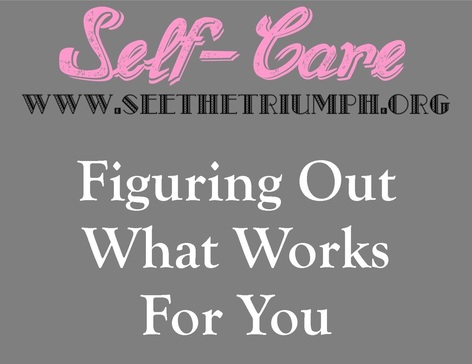
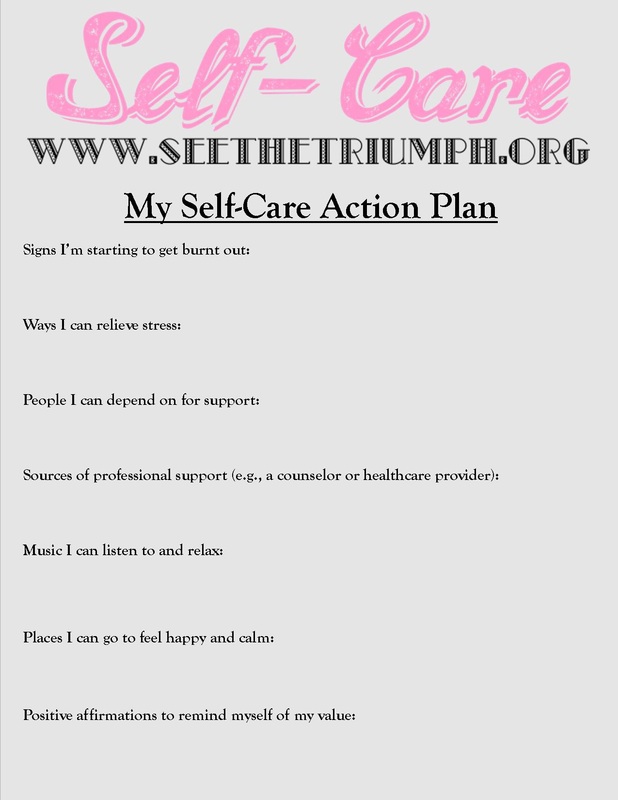
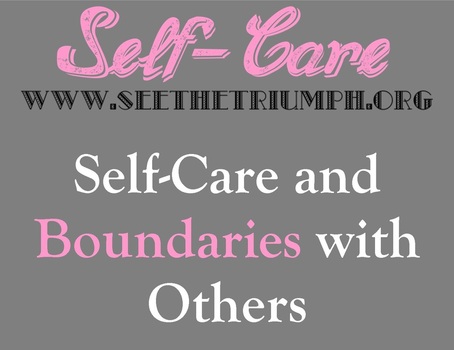
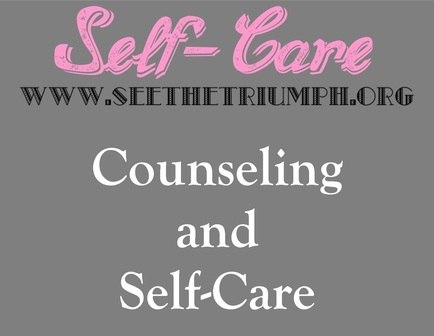
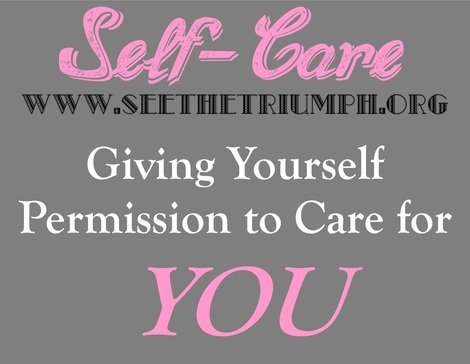
 RSS Feed
RSS Feed